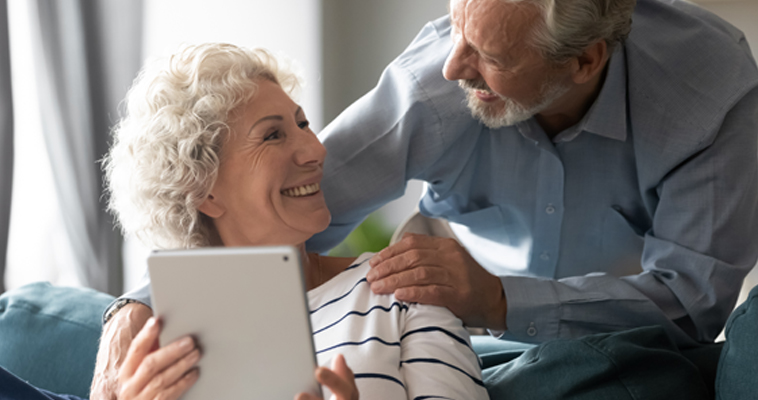As your abilities change, it’s natural to have concerns about how to prepare for the unexpected. The good news is there are countless assistive technologies or devices that can help make you feel more comfortable in your home. Here are some of the latest smart home devices you can try to help you feel safe and confident at home:
Smart Lighting
No matter your age or ability, good lighting is important for safe and easy movement throughout the home. Smart lighting allows you to conveniently control the lighting in your home whether it’s by movement, your voice, or on your smartphone. You can even schedule your lighting so that it turns on and off at certain times throughout the day. You can also adjust your lighting to how dim or bright you want it to be. This can be very helpful if you mainly use a wheelchair or have mobility issues that would make it difficult to turn lights on and off by hand.
Doorbell Camera
Think of a doorbell camera as a virtual peephole! With a doorbell camera, keep track of whoever comes to the door and how long they stay without even needing to open the door. The best part? You can see these visitors no matter where you are just by using your smartphone, even if you aren’t home. Some doorbell cameras will even allow you to answer the door remotely. For example, if you are not home and someone is delivering a package you can let them know where to leave it. This is also a great device to have if you have mobility issues and are too far from the door when you receive a visitor. You can just use your smartphone to see who they are and let them know you’ll be at the door soon.
Smart Locks
Sometimes we forget to lock our doors at home, or we think we locked them but can’t be sure unless we go back and check. With smart locks, you can check to see which doors are locked or not from your phone. You can also lock or unlock doors remotely, so if you’re in one room of your home you don’t have to go to a different room just to lock a door. This means if you are at the store and realize you forgot to lock your front door, you can just do it from the store! And if you’re expecting someone, like a neighbor or family member but you aren’t home to let them in, you can do that from wherever you are too.
Medical Alert Systems
Medical alert systems, also known as personal emergency response systems (PERS), provide you and your loved ones with peace of mind. In case of an emergency, such as a fall, these systems will quickly notify first responders and send medical assistance to your location. Most in-home systems are limited to a certain distance range in order to work properly, but there are also on-the-go devices you can use for when you leave the home as long as the battery is charged. Medical alert systems also offer a range of features and prices to choose from, so it’s important to know what your specific needs are to find the right system for you.
If you think you may need help paying for these assistive technologies, you can also visit MyPlaceCT’s Home Modifications & Assistive Technology Financial Assistance page to learn more about your options.
Add to Favorites
